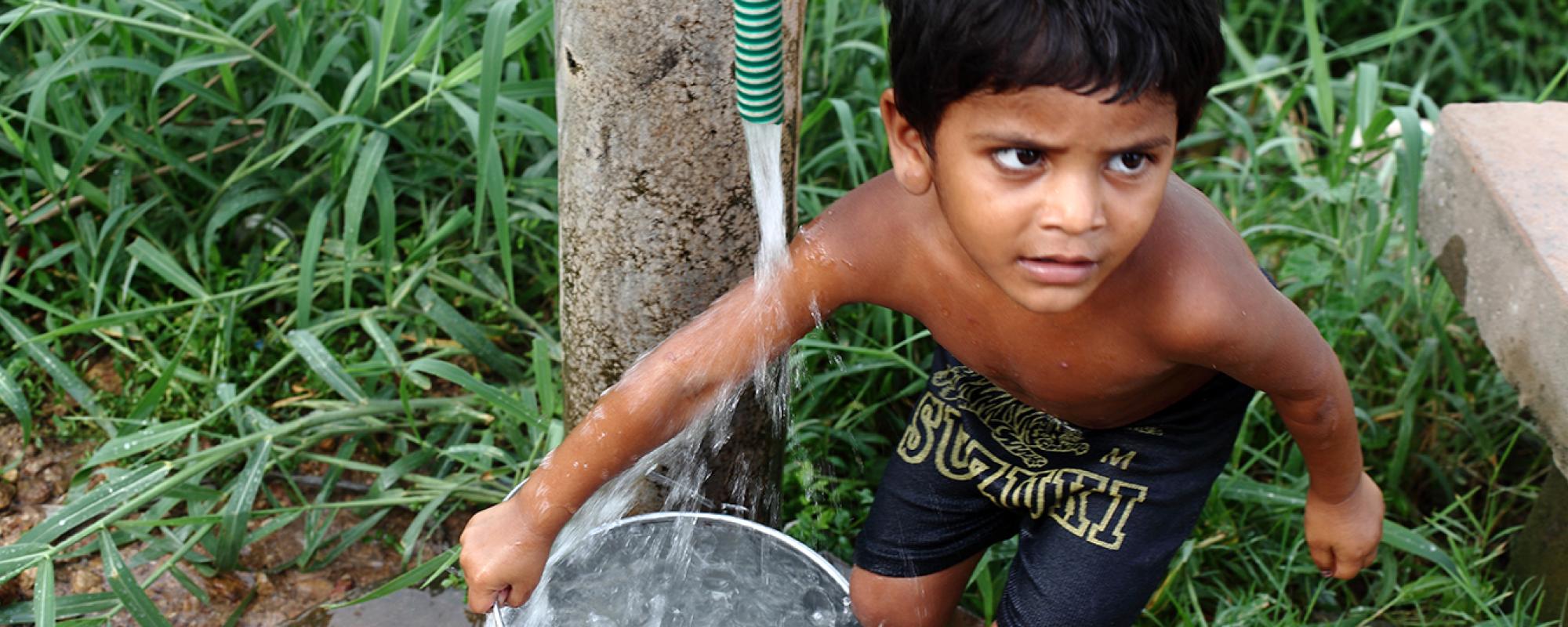This website is run by Young Lives, a research project based at the Department of International Development, University of Oxford.
How accessible is this website?
We want as many people as possible to be able to use this website and are currently in the process of updating it to comply with the Web Content Accessibility Guidelines version 2.1 AA standard (WCAG).
Young Lives website meets the following Accessibility requirements:
- The colour scheme is fully accessible
- Alt text has been added to images and logos across the website.
- Users can pause the banner on the homepage.
- The website’s hover is responsive to the keyboard as well as the mouse and works for each item on a page.
- The site ]features valid HTML in all areas.
- The Mobile menu is accessible.
- All PDF's published after September 28th 2018 are fully accessible.
What to do if you cannot access parts of this website
If you need information on this website in a different format (such as large print), please contact our Communications Manager, Julia Tilford via email: julia.tilford@qeh.ox.ac.uk . We’ll consider your request and get back to you as soon as we can.
AbilityNet has advice on making your device easier to use if you have a disability. In addition, major operating systems produce the following guidance:
Reporting accessibility problems with this website
If you find any problems whilst we continue work to ensure full accessibility, please contact Julia Tilford, Young Lives Communications Manager via the email address listed on this page.
Enforcement procedure
The Equality and Human Rights Commission (EHRC) is responsible for enforcing the Public Sector Bodies (Websites and Mobile Applications) (No. 2) Accessibility Regulations 2018 (the ‘accessibility regulations’). If you’re not happy with how we respond to your complaint, contact the Equality Advisory and Support Service (EASS).
Technical information about this website’s accessibility
Young Lives is committed to making its website accessible, in accordance with the Public Sector Bodies (Websites and Mobile Applications) (No. 2) Accessibility Regulations 2018.
Compliance Status
This website is partially compliant with the Web Content Accessibility Guidelines version 2.1AA standard.
Non-accessible content
We continue to work to ensure all website content is accessible. Outstanding work to complete is:
- Issues with documents, including Word files and PDFs (published after 28th September 2018);
- issues with video and audio;
Any new PDFs or Word documents we publish will meet accessibility standards.
Preparation of this accessibility statement
This statement was prepared on 22 September 2020 and last reviewed and updated in June 2024.
This website is run by Young Lives, a research project based at the Department of International Development, University of Oxford.
How accessible is this website?
We want as many people as possible to be able to use this website and are currently in the process of updating it to comply with the Web Content Accessibility Guidelines version 2.1 AA standard (WCAG).
Young Lives website meets the following Accessibility requirements:
- The colour scheme is fully accessible
- Alt text has been added to images and logos across the website.
- Users can pause the banner on the homepage.
- The website’s hover is responsive to the keyboard as well as the mouse and works for each item on a page.
- The site ]features valid HTML in all areas.
- The Mobile menu is accessible.
- All PDF's published after September 28th 2018 are fully accessible.
What to do if you cannot access parts of this website
If you need information on this website in a different format (such as large print), please contact our Communications Manager, Julia Tilford via email: julia.tilford@qeh.ox.ac.uk . We’ll consider your request and get back to you as soon as we can.
AbilityNet has advice on making your device easier to use if you have a disability. In addition, major operating systems produce the following guidance:
Reporting accessibility problems with this website
If you find any problems whilst we continue work to ensure full accessibility, please contact Julia Tilford, Young Lives Communications Manager via the email address listed on this page.
Enforcement procedure
The Equality and Human Rights Commission (EHRC) is responsible for enforcing the Public Sector Bodies (Websites and Mobile Applications) (No. 2) Accessibility Regulations 2018 (the ‘accessibility regulations’). If you’re not happy with how we respond to your complaint, contact the Equality Advisory and Support Service (EASS).
Technical information about this website’s accessibility
Young Lives is committed to making its website accessible, in accordance with the Public Sector Bodies (Websites and Mobile Applications) (No. 2) Accessibility Regulations 2018.
Compliance Status
This website is partially compliant with the Web Content Accessibility Guidelines version 2.1AA standard.
Non-accessible content
We continue to work to ensure all website content is accessible. Outstanding work to complete is:
- Issues with documents, including Word files and PDFs (published after 28th September 2018);
- issues with video and audio;
Any new PDFs or Word documents we publish will meet accessibility standards.
Preparation of this accessibility statement
This statement was prepared on 22 September 2020 and last reviewed and updated in June 2024.


